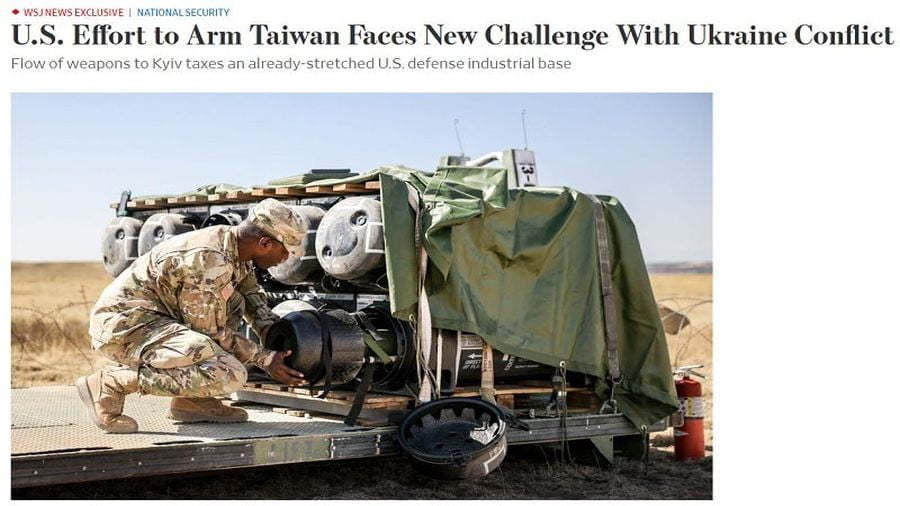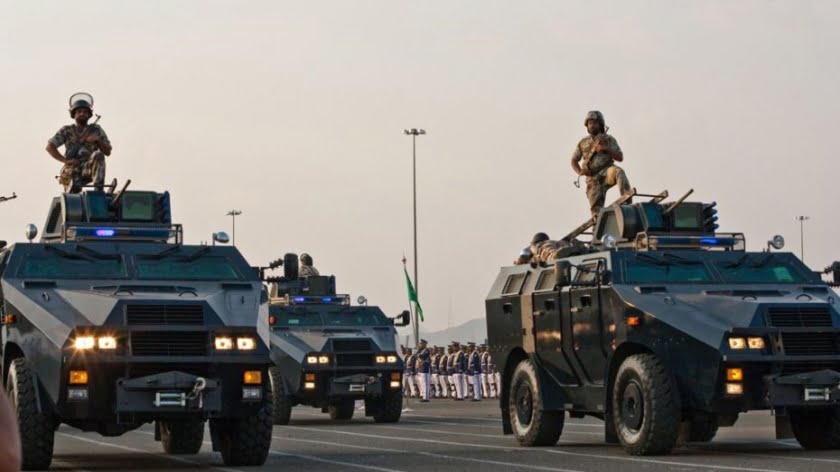The US’ Arms Backlog for Taiwan Caused by Ukraine Can Facilitate the New Détente
Goodwill and trust are needed to take the New Détente forward, hence the significance of the US considering the indefinite delay or outright scrapping of its backlogged arms shipments to Taiwan as a bargaining chip in these discussions in order to incentivize China to reciprocate by making its own compromise on a similarly important issue of concern for its rival.
The Wall Street Journal (WSJ) reported on Sunday that “U.S. Effort to Arm Taiwan Faces New Challenge With Ukraine Conflict”, spiking an extra $4 billion over the past year to a total of nearly $19 billion worth of arms that America has yet to deliver to that rogue island due to Kiev taking priority. Unnamed sources also informed the outlet that this includes 208 Javelin anti-tank missiles and 215 Stinger anti-air ones from separate orders made in 2015, which they worry will weaken Taiwan’s “porcupine strategy”.
That concept refers to the strategy of “arm[ing] Taiwan in a way that raises the cost to China should it decide to invade” such as seriously complicating any air, amphibious, coastal operations that the People’s Liberation Army-Navy (PLAN) and other branches of Beijing’s armed forces could attempt. Self-propelled howitzer artillery are also reportedly delayed according to the WSJ’s unnamed sources despite official denials, though an $8 billion deal for 66 F-16 jets is supposedly still on schedule for this decade.
The importance of the information shared in their article is that it actually presents an unexpected opportunity to facilitate recent Sino-American efforts to reach a series of mutual compromises aimed at establishing a pragmatic balance of influence between them that would then become the “new normal”. Also known as the New Détente, this process was initiated by China in mid-November after the People’s Republic realized the seriousness of its grand strategic crisis caused by a recent confluence of events.
Described in detail in my piece from early October about how “The Ukrainian Conflict Might Have Already Derailed China’s Superpower Trajectory”, the gist is that the systemic consequences of this proxy war destabilized the global basis upon which China’s long-term plans were predicated. The general insight contained therein was also recently confirmed in The Daily Beast’s latest piece about the People’s Republic, thus adding credence to my observations about its grand strategic vulnerabilities.
Readers should review those two preceding hyperlinks as well as my analysis of the interplay between the US, China, Russia, and India in order to better understand the driving forces behind the New Détente. Upon doing so, it’ll become clearer what role the information shared in the WSJ’s latest article could play, namely that it stands the chance of becoming a bargaining chip towards reaching the pragmatic balance of influence that China and the US hope to agree with one another by early next year.
There’s little chance that China will proactively employ military means for reunifying with Taiwan absent America seriously crossing its national security red lines on that island, especially since the self-inflicted economic crisis caused by the EU’s compliance with the US’ anti-Russian sanctions made Beijing realize that Brussels could credibly follow suit against the People’s Republic in that scenario. That could cripple China’s economy, hence why it can be described as a Damocles’ sword for deterring Beijing (for now).
Nevertheless, as was written above, the People’s Republic would probably still risk those crippling economic-financial consequences if it felt that the alternative was full-on strategic capitulation to American military blackmail emanating from Taiwan. The mutually disadvantageous consequences of China proactively employing military means to defend the integrity of its national security red lines on the island should thus incentivize the US to exercise restraint in order to avert that scenario.
This logic leads to the relevance of the WSJ’s article to the ongoing Sino-American discussions on a New Détente since the US could either scrap its backlogged arms shipments to Taiwan as a “goodwill gesture” for facilitating those talks (or a reward for their successful conclusion) or postpone them indefinitely in order to “save face” before its domestic audience and Western vassals. What’s most important is for the US to freeze its contribution to Taiwan’s “porcupine strategy”.
After all, it’s this policy that could tangibly complicate China’s potential military campaign there more than anything else, including the F-16 deal that’s supposedly on track to be delivered from the mid-2020s as planned. Those planes can be shot out of the sky, but those troops landing on the island’s coast and heading inland (or even if they’re airdropped into the latter) would have as difficult of a time advancing as their Russian peers have in Ukraine due to the swarm of anti-air and -tank missiles.
If China’s military-driven reunification campaign doesn’t succeed in establishing a secure foothold on Taiwan in its first few days and/or if it incurs massive physical costs, then the follow-up economic-financial consequences caused by the expected Western sanctions could ultimately make the whole endeavor unacceptable. Beijing would therefore need to blitz its rogue region and reassert its legal writ over it as soon as possible in order to avoid the worst-case scenario of a potentially humiliating failure.
That’s not to predict that China would indeed fail, but just that the chances of that happening increase tremendously the more that Taiwan’s “porcupine strategy” enters into effect upon the delivery of the US’ delayed anti-air and -tank missiles. The island already has impressive enough potential in this respect to have deterred that scenario thus far, but going even further like the US might do could risk crossing Beijing’s national security red lines there and thus inadvertently provoking a military response.
Seeing as how that sequence of events should be averted in order to avoid the mutually disadvantageous chain reaction that would follow, the US should therefore consider making the delivery of its delayed “porcupine” arms to Taiwan a bargaining chip in its New Détente discussions with China. America’s already supplied enough to its proxy as it is and therefore successfully offset that scenario for the time being, but doubling down on this policy risks provoking a major conflict by miscalculation.
If the US signals that it could at least indefinitely delay these shipments as a reward for reaching a New Détente, then it’s very likely that China would be extremely receptive and thus consider reciprocating in some way or another through its own compromise on a similarly important issue of concern for its rival. Goodwill and trust are needed to take the New Détente forward, hence the significance of including backlogged American arms to Taiwan in the portfolio of discussions, even if only informally for now.







